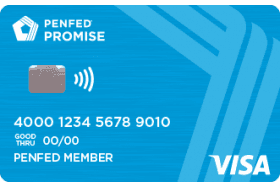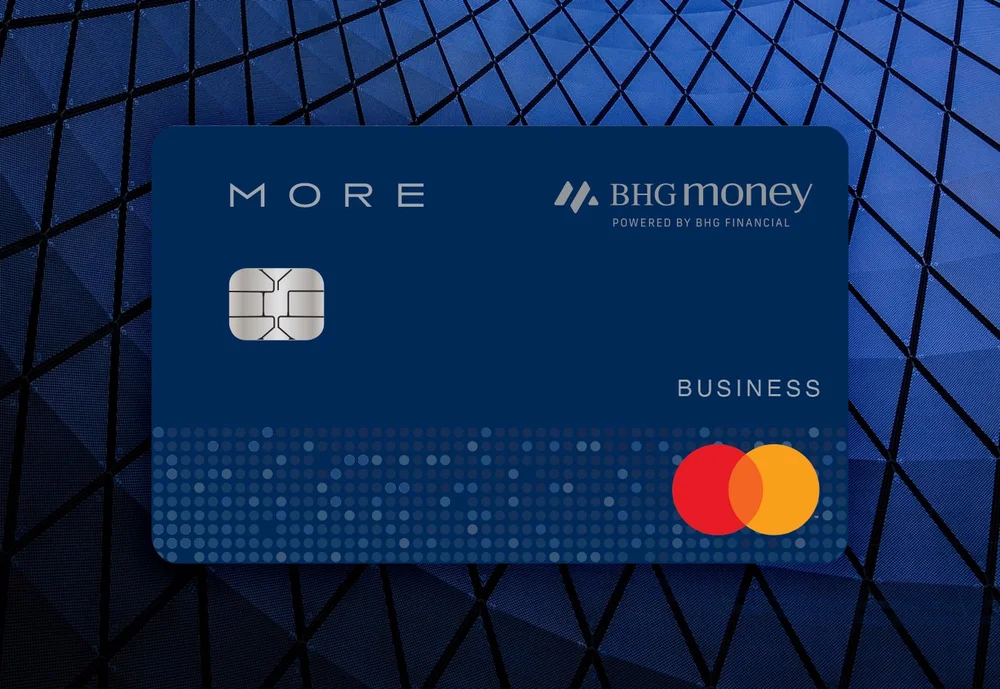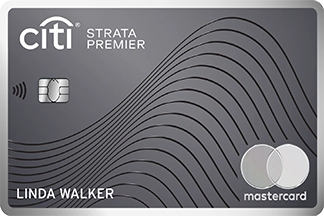- myFICO® Forums
- FICO Scoring and Other Credit Topics
- Understanding FICO® Scoring
- Re: flawed FICO scoring system
- Subscribe to RSS Feed
- Mark Topic as New
- Mark Topic as Read
- Float this Topic for Current User
- Bookmark
- Subscribe
- Mute
- Printer Friendly Page
flawed FICO scoring system
Is your credit card giving you the perks you want?
Browse credit cards from a variety of issuers to see if there's a better card for you.
- Mark as New
- Bookmark
- Subscribe
- Mute
- Subscribe to RSS Feed
- Permalink
- Report Inappropriate Content
Re: flawed FICO scoring system
@Thomas_Thumb wrote:
@Anonymous wrote:I disagree that "a high FICO score encourages spending." My scores have been over 800 at times and barely over 600 at other times; I wasn't more encouraged to spend when my score was higher.
Again to rehash a point that's already been made a few pages back, there are different ways to look at "debt." Many people that use credit simply do so to build their profile and score as an investment in their future in a way for a time they may actually need it such as a big mortgage. People that use credit cards but PIF every month that never pay a penny of interest are essentially using their "credit" the same way they'd use a debit card. There are people that could buy cars with cash but still use auto loans. I'm one of those people and more than once in my life about half way into the loan term I've just paid it off as to not be bothered anymore. Using the system allows one to build their profile (and scores) and rightfully so over someone that doesn't use it. If people live by the rule of not buying anything they can't afford, from my perspective they don't have "real" debt. That's just how I see it.
Agreed.
You don't need to spend a lot to get a top Fico score. You need to have credit and manage the credit you have responsibly. Common sense applies.
Credit scores are response (output) variables they are NOT input variables.No connection with high spend and high Fico scores.
Thomas are you in agreement with several other posters that:
all other things being equal, a person who has a current modest debt is more
creditworthy than a person who has no current debt?































Total revolving limits 568220 (504020 reporting) FICO 8: EQ 689 TU 691 EX 682
- Mark as New
- Bookmark
- Subscribe
- Mute
- Subscribe to RSS Feed
- Permalink
- Report Inappropriate Content
Re: flawed FICO scoring system
A, B, and C are same age, have identical credit history (including mortgages, auto loans, and credit cards), same income, and $25,000 in savings. They all have no open installment loans and zero reported credit card balances.
Then during the next 2 months:
A continues in the same vein
B spends $100 on a credit card and allows it to report
C spends $100 on a credit card and allows it to report, and buys a car, takes out a car loan for $15,000, then takes $13,750 out of his savings and pays the loan down to $ $1250, so that his savings are now $11,250
3 questions:
1. Who has the highest FICO8 score?
2. Who has the lowest FICO8 score?
3. Is the person with the highest FICO8 score more creditworthy and less risky than the person with the lowest FICO8 score?
We all know he is not.































Total revolving limits 568220 (504020 reporting) FICO 8: EQ 689 TU 691 EX 682
- Mark as New
- Bookmark
- Subscribe
- Mute
- Subscribe to RSS Feed
- Permalink
- Report Inappropriate Content
Re: flawed FICO scoring system
@SouthJamaica wrote:A, B, and C are same age, have identical credit history (including mortgages, auto loans, and credit cards), same income, and $25,000 in savings. They all have no open installment loans and zero reported credit card balances.
Then during the next 2 months:
A continues in the same vein
B spends $100 on a credit card and allows it to report
C spends $100 on a credit card and allows it to report, and buys a car, takes out a car loan for $15,000, then takes $13,750 out of his savings and pays the loan down to $ $1250, so that his savings are now $11,250
So, that's:
A - no current positive credit feedback
B - current positive credit feedback
C - additional current positive credit feedback, and credit-aware enough to game the scoring system
@SouthJamaica wrote:
3 questions:
1. Who has the highest FICO8 score?
2. Who has the lowest FICO8 score?
3. Is the person with the highest FICO8 score more creditworthy and less risky than the person with the lowest FICO8 score?
1 - Probably C. (Might be B, depending on what their initial identical profiles looked like AAoA-wise, I suppose.)
2 - A, almost certainly. (Although C probably dipped to lowest briefly during the process...)
3 - Yes.
@SouthJamaica wrote:
We all know he is not.
...I think we're all just going to have to agree to disagree here.
I will point out, though, that the tiny fraction of a percent of people who will act like C are:
1 - Probably members of MF or one of a few similiar communities
2 - Likely to, as a group, be less risky than average
3 - Likely to be less risky than their current scores might indicate (both from lessons learned here, and from hard lessons that led them here)
So, yes, as I think you're trying to point out - gaming scores is certainly possible.
But (outside of tactics like tradeline rentals and outright fraud), most of the techniques frequently discussed here that lead to rapid score increases tend to go hand-in-hand with increased credit awareness and decreased true risk...
And that ends up being a good thing all around, both for consumers and lenders.
EQ9:847 TU9:847 EX9:839
EQ5:797 TU4:807 EX2:813 - 2021-06-06
- Mark as New
- Bookmark
- Subscribe
- Mute
- Subscribe to RSS Feed
- Permalink
- Report Inappropriate Content
Re: flawed FICO scoring system
The simple truth is that if you pay off your debt your FICO score goes down. This encourges people to keep their debt high, make regular payments including paying off the balance of every credit card purchase every month. This process is not the same as using your debit card. A debit card is the same as cash. Believe me I have gone both ways and using a debit card did not give me a high credit score. My FICO score was a close to 850 as you could get without being 850. When I paid off my mortgage my FICO dropped to 816. But I saved $16,000 in future interest payments. That was a no brainer but lowering my debt decreased my FICO. High debt equates to high FICO and encourages debt that is maintained without any penalties.
- Mark as New
- Bookmark
- Subscribe
- Mute
- Subscribe to RSS Feed
- Permalink
- Report Inappropriate Content
Re: flawed FICO scoring system
@Anonymous wrote:The simple truth is that if you pay off your debt your FICO score goes down. This encourges people to keep their debt high, make regular payments including paying off the balance of every credit card purchase every month. This process is not the same as using your debit card. A debit card is the same as cash. Believe me I have gone both ways and using a debit card did not give me a high credit score. My FICO score was a close to 850 as you could get without being 850. When I paid off my mortgage my FICO dropped to 816. But I saved $16,000 in future interest payments. That was a no brainer but lowering my debt decreased my FICO. High debt equates to high FICO and encourages debt that is maintained without any penalties.
Well said, ws237.































Total revolving limits 568220 (504020 reporting) FICO 8: EQ 689 TU 691 EX 682
- Mark as New
- Bookmark
- Subscribe
- Mute
- Subscribe to RSS Feed
- Permalink
- Report Inappropriate Content
Re: flawed FICO scoring system
ws237 wrotelease do not
The simple truth is that if you pay off your debt your FICO score goes down. This encourges people to keep their debt high, make regular payments including paying off the balance of every credit card purchase every month. This process is not the same as using your debit card. A debit card is the same as cash. Believe me I have gone both ways and using a debit card did not give me a high credit score. My FICO score was a close to 850 as you could get without being 850. When I paid off my mortgage my FICO dropped to 816. But I saved $16,000 in future interest payments. That was a no brainer but lowering my debt decreased my FICO. High debt equates to high FICO and encourages debt that is maintained without any penalties.
This is simply not true. High debt often is associated with very low Fico scores.
Scoring models like seeing debt, it's not if the debt is high or low - just that it is managed to avoid excessive revolving credit utilization. Same goes for installment loans. Size of an open loan is NOT critical, it's balance to loan ratio that matters.
Please do not promote high debt as having any intrinsic value regarding credit scores.
Fico 8: .......EQ 850 TU 850 EX 850
Fico 4 .....:. EQ 809 TU 823 EX 830 EX Fico 98: 842
Fico 8 BC:. EQ 892 TU 900 EX 900
Fico 8 AU:. EQ 887 TU 897 EX 899
Fico 4 BC:. EQ 826 TU 858, EX Fico 98 BC: 870
Fico 4 AU:. EQ 831 TU 872, EX Fico 98 AU: 861
VS 3.0:...... EQ 835 TU 835 EX 835
CBIS: ........EQ LN Auto 940 EQ LN Home 870 TU Auto 902 TU Home 950
- Mark as New
- Bookmark
- Subscribe
- Mute
- Subscribe to RSS Feed
- Permalink
- Report Inappropriate Content
Re: flawed FICO scoring system
@Thomas_Thumb wrote:
ws237 wrotelease do not
The simple truth is that if you pay off your debt your FICO score goes down. This encourges people to keep their debt high, make regular payments including paying off the balance of every credit card purchase every month. This process is not the same as using your debit card. A debit card is the same as cash. Believe me I have gone both ways and using a debit card did not give me a high credit score. My FICO score was a close to 850 as you could get without being 850. When I paid off my mortgage my FICO dropped to 816. But I saved $16,000 in future interest payments. That was a no brainer but lowering my debt decreased my FICO. High debt equates to high FICO and encourages debt that is maintained without any penalties.
This is simply not true. High debt often is associated with very low Fico scores.
Scoring models like seeing debt, it's not if the debt is high or low - just that it is managed to avoid excessive revolving credit utilization. Same goes for installment loans. Size of an open loan is NOT critical, it's balance to loan ratio that matters.
Please do not promote high debt as having any intrinsic value regarding credit scores.
Well, "high" and "low" are subjective terms. To OP, who is in his eighties, owing $16,000 on his mortgage felt like "high debt" and he feels a lot better having gotten rid of that debt.
But FICO punishes him for that sense of well being, and would only reward him if he went back into debt.
High or low, current debt is needed in order to attain the highest reaches of FICO.
Which is a shame (and, indeed, a flaw, if FICO were truly all about risk; current indebtedness does not make one less risky).































Total revolving limits 568220 (504020 reporting) FICO 8: EQ 689 TU 691 EX 682
- Mark as New
- Bookmark
- Subscribe
- Mute
- Subscribe to RSS Feed
- Permalink
- Report Inappropriate Content
Re: flawed FICO scoring system
@Anonymous wrote:
@SouthJamaica wrote:I beg to differ. If you borrow money from someone and are obligated to pay it back, that's "debt"
In the truest sense of the word, sure... but you and I both know that it's not real "debt" if you immediately pay it back, ie essentially using credit cards the exact way one uses debit cards, just adding 1 more step in the process to flow those dollars through the card. In this example there is no "real" debt yet someone can achieve a phenomenal credit score acting in this method. And many do.
Agreed...lol
AmEx Hilton Honors Surpass//AmEx Platinum Card//Ann Taylor Rewards Mastercard//Capital One Platinum Card//Credit One AmEx//Credit One Platinum VISA//Fingerhut//Navy More Rewards AmEx//TruWest Platinum VISA//Aspire VISA//Costco Anywhere VISA//Lowes Advantage//Apple Card
Loans:
1 Mortgage/////Navy FCU Auto Loan (2020 Jaguar I-Pace)//Capital One Auto (2016 BMW i3)
Next Cards (4th QTR 2022):
Navy Flagship Rewards VISA//Chase Sapphire Preferred
Stats:
Scores: 700's // Inq's: 1 for mortgage // Util: 1% // AoOA: 21 yrs
- Mark as New
- Bookmark
- Subscribe
- Mute
- Subscribe to RSS Feed
- Permalink
- Report Inappropriate Content
Re: flawed FICO scoring system
@Revelate wrote:It's just data. Not certain why people seem to be taking personal affront from it... I'm one of the credit downtrodden but it's a known path to righteousness just takes a long period of time for me (6 years from my registration date here to get clean). People without debt are a bigger credit risk according to the data, and frankly, I can even see that as paying bills is just another routine like anything else in life.
The way to get back at the system is to simply manipulate your file to your advantage anyhow, and arguably that's what this particular board on this particular forum is all about anyway
.
Agreed...
AmEx Hilton Honors Surpass//AmEx Platinum Card//Ann Taylor Rewards Mastercard//Capital One Platinum Card//Credit One AmEx//Credit One Platinum VISA//Fingerhut//Navy More Rewards AmEx//TruWest Platinum VISA//Aspire VISA//Costco Anywhere VISA//Lowes Advantage//Apple Card
Loans:
1 Mortgage/////Navy FCU Auto Loan (2020 Jaguar I-Pace)//Capital One Auto (2016 BMW i3)
Next Cards (4th QTR 2022):
Navy Flagship Rewards VISA//Chase Sapphire Preferred
Stats:
Scores: 700's // Inq's: 1 for mortgage // Util: 1% // AoOA: 21 yrs
- Mark as New
- Bookmark
- Subscribe
- Mute
- Subscribe to RSS Feed
- Permalink
- Report Inappropriate Content
Re: flawed FICO scoring system
@Anonymous wrote:
@SouthJamaica wrote:I'm fairly certain that a person who's paid off all of his debts cannot get a perfect score.
That's pathetic.
No it's not. First of all there's no real world difference between a score from probably 780-850 (+/-) so anything in that range may as well be considered a "perfect" score. People that have "paid off all their debts" can certainly fall into that range quite easily.
Second, like many things in life you have to use the system. It's like investing. You may have had a few solid investments in your life, but if you aren't happy with where you're at as a result you can either do nothing or invest more.
Your statement is far too generalized. You're suggesting a person that has paid off all of his debts should be able to achieve a score of 850. Here's my question back to you. Say an 18 year old individual has a <1 year AAoA and exactly 1 account, ever, on his file. He's run it up, but paid it off. According to your simple, generalized statement this individual should be able to achieve a perfect score. Or are you only referring to people in their 30's+ with over a decade of history that have paid off say 15 accounts? Or somewhere in between these two individuals? Where is the line drawn? The point is there is no line, and that's why scoring takes into account a ton of different data, bucketing, etc. to arrive at an estimation of ones creditworthiness.
Agreed.
AmEx Hilton Honors Surpass//AmEx Platinum Card//Ann Taylor Rewards Mastercard//Capital One Platinum Card//Credit One AmEx//Credit One Platinum VISA//Fingerhut//Navy More Rewards AmEx//TruWest Platinum VISA//Aspire VISA//Costco Anywhere VISA//Lowes Advantage//Apple Card
Loans:
1 Mortgage/////Navy FCU Auto Loan (2020 Jaguar I-Pace)//Capital One Auto (2016 BMW i3)
Next Cards (4th QTR 2022):
Navy Flagship Rewards VISA//Chase Sapphire Preferred
Stats:
Scores: 700's // Inq's: 1 for mortgage // Util: 1% // AoOA: 21 yrs